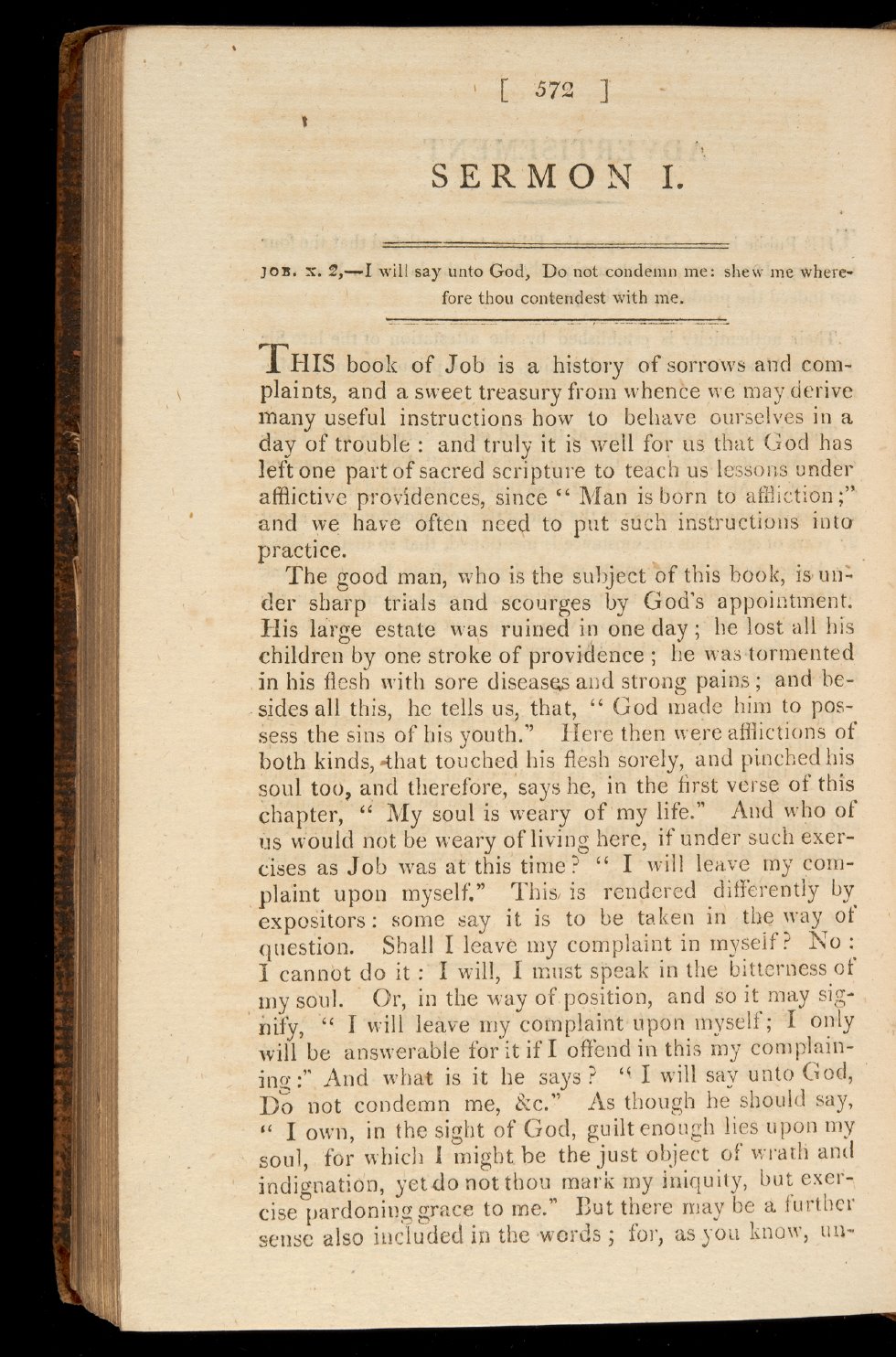

C
572
]
SERMON
I.
boa.
x.
2,-1
will
say unto
God, Do
not condemn me:
shew me where-
fore
thou contendest with me.
THIS
book
of
Job
is
a history
of
sorrows and com-
plaints, and a
sweet
treasury
from whence
we
may.derive
many
useful
instructions
how
to
behave ourselves
in
a
day
of trouble and
truly
it
is
well
for
us
that
God
has
left
one
part of
sacred
scripture
to teach
us
lessons
under
afflictive
providences, since
"
Man
is
born
to
affliction;"
and
we
have often
need
to
put
such
instructions into
practice.
The
good man,
who
is
the subject
of
this
book;
is
un:
der sharp trials and
scourges
by
God's appointment.
His
large estate
was
ruined
in
one day
;
he
lost
all
his
children
by
one
stroke
of
providence
;
he
wastormented.
.
in
his
flesh
with
sore diseases
and strong
pains
;
and be-
sides all this,
he tells
us,
that,
"
God
made
him
to
pos-
sess
the
sins
of
his
youth."
Here
then
were afflictions
of
both
kinds,
-that touched
his
flesh
sorely,
and pinched
his
soul
too, and therefore,
says he, in
the
first verse
of
this
chapter,
"
My
soul
is
weary
of
'my
life." And who
of
us wóuld
not
be
weary
of
living here,
if under
such
exer-
cises as
Job
was
at
this
time
?
"
I
will
leave
my
coin-
plaint
upon
myself." This,
is
rendered
differently
by
expositors
:
some say
it
is
to be
taken
in
the
way
of
question.
Shall I
leave
my
complaint
in
myself
?
No
:
I
cannót
do it I
will,
I
must speak
in
the bitterness
of
my soul.
Or,
in
the
way
of
position, and
so
it
may
si;-
itify,
"
I will
leave
my'
complaint upon
myself;
'I
only
will he
answerable for
it
if I
offend in this
my
complain-
ing
:"
And what
is
it
he says
?
`E
I
will
say
unto God,
Do
not condemn
me, &c." As
though
he should
say,
"
I
own,
in
the sight
of
God, guilt
enough
lies
upon
my
soul, for
which
I
might he the
just
object
of wrath and
indignation,
yetdo
not
thou mark
my
iniquity,
but
exec
-,
cise
pardoning
grace
to me."
But there
may
be
a further
sense also
included.in
the words
;
for, as
you
know, un

















